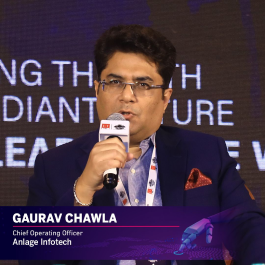

Struggling to find, hire, and retain top talent in a fast-moving world? You’re not alone. The world of work is changing rapidly. With hybrid models becoming the norm, talent becoming truly global, and technology reshaping every function of business, companies are reimagining how they attract, engage, and retain their workforce. At the heart of this transformation lies the talent hub—a centralized platform that goes far beyond traditional recruitment to become a strategic asset in driving business growth.
In 2025, a talent hub is not just a tool—it's the engine that powers an organization's workforce strategy. Whether you’re setting up a captive unit, expanding a Global Capability Center, or strengthening your shared services model, a modern talent hub is essential. It integrates AI, data, automation, and human insight to streamline how talent is discovered, evaluated, onboarded, developed, and retained.
So, what exactly should a next-generation talent hub include? Below are the seven essential features that define a high-impact talent hub in 2025—and why they matter more than ever.
AI is no longer a buzzword—it's a backbone. In 2025, every future-ready talent hub must be built on intelligent automation. From parsing resumes to assessing behavioral traits, AI recruitment tools now handle tasks that once took weeks, in just minutes.
For instance, predictive algorithms can forecast which candidate is most likely to succeed based on historical data and behavioral patterns. Machine learning models can match talent with jobs they didn’t even know they were fit for—enhancing both internal mobility and external hiring. Chatbots handle initial engagement. NLP models can even analyze voice and video cues during interviews for deeper insights.
This automation reduces bias, improves candidate quality, and saves significant time. For companies leveraging Talent Solutions at scale, these tools offer consistency and precision that manual processes simply cannot.
A superior candidate experience is no longer a differentiator—it’s an expectation. And a smart talent hub should reflect this shift.
Today’s candidates expect personalized journeys—from how they apply for jobs to how they are interviewed, offered roles, and even onboarded. In a hyper-competitive talent market, frictionless experiences are what drive top talent to choose one company over another.
In 2025, a talent hub must support:
This digital-first approach dramatically increases application rates and reduces drop-offs. For companies deploying GCC solutions across multiple geographies, this ensures consistency in candidate experience, regardless of location or role.
A true talent hub doesn’t just hire talent—it nurtures it throughout the employee lifecycle. That includes onboarding, learning and development, performance management, engagement, internal mobility, and exit formalities.
Instead of relying on disconnected systems and spreadsheets, a unified talent hub integrates all these processes. This results in smoother transitions, more meaningful analytics, and increased employee retention.
Imagine this: A high-potential employee completes a skill course within the hub, receives a performance badge, gets recommended for a new internal role, and applies with a click—without HR ever intervening. This level of self-driven growth is what makes modern hubs future-ready.
And for businesses operating under Build-Operate-Transfer models, this lifecycle continuity is critical to ensure that once the ‘transfer’ happens, talent maturity is retained within the system.
Cross-border hiring has become the norm, bringing with it complex legal and regulatory obligations. A modern talent hub must have built-in compliance automation to address local and international employment laws, tax norms, DEI mandates, GDPR, and more.
For instance, in the EU, recruitment and data processing must comply with strict GDPR guidelines. In India, evolving labor codes impact wage calculations and compliance filings. A compliance-ready talent hub accounts for these requirements automatically—reducing risk and effort.
This is especially vital when operating large Global Capability Centers, where one misstep in local compliance can result in penalties, delays, or even reputational damage.
Notably, a PwC report revealed that nearly 90% of survey respondents reported their breadth of compliance responsibilities has increased in the last three years, underscoring the critical need for robust compliance mechanisms within talent hubs to navigate the complexities of international employment regulations effectively.
Hiring is a team sport. Business heads, team leads, HR, and even external partners play roles in selecting the right talent. The traditional email-thread and spreadsheet-based model simply doesn’t work anymore.
In 2025, a well-architected talent hub must offer a collaborative hiring workspace where stakeholders can:
These features ensure faster, data-backed hiring while reducing duplication and communication breakdowns. In shared services environments, where different business units might be involved in the hiring process, this collaboration becomes even more critical to avoid fragmentation.
Scalability is a necessity—not a luxury. Today’s HR tech landscape is evolving so rapidly that your talent hub needs to be future-proof. That’s where API-first, modular architecture becomes essential.
A smart talent hub in 2025 must integrate effortlessly with:
This plug-and-play flexibility allows companies to keep their core talent infrastructure intact while experimenting or innovating around the edges. For a captive unit or large multinational, this avoids costly overhauls and ensures long-term tech sustainability.
The age of data-driven HR has arrived. A robust talent hub must be equipped with powerful analytics that not only track KPIs like time-to-hire and cost-per-hire but also provide deeper strategic insights.
These can include:
Having access to such insights empowers CHROs and business leaders to make smarter decisions that directly affect growth. The best talent hubs also allow for customizable dashboards based on user roles—so a recruiter sees different data than a business unit head.
For organizations scaling fast via Talent Solutions, real-time reporting can be the difference between reactive hiring and proactive workforce planning.
The modern talent hub is not just a platform—it is the strategic enabler of business agility, innovation, and sustainable growth. With the war for talent intensifying and digital transformation accelerating, companies must invest in a talent hub that is scalable, intelligent, and human-centric.
Whether you’re setting up a GCC, running a Build-Operate-Transfer model, or scaling shared services teams, your talent hub will play a decisive role in your success.
In conclusion, choosing the right talent hub in 2025 isn’t about features—it’s about future-readiness. Prioritize these 7 capabilities, and you’ll build a workforce engine built not just for today, but for tomorrow.

Gaurav Chawla, COO of Anlage Infotech, emphasized the transformative role of AI-powered analytics in HR at the 5th Edition of the GCC Summit 2024. Highlighting predictive analysis and smart tool utilization, he shared how these technologies can cut hiring cycle times by up to 60%, driving greater efficiency. The event took place at GMR Aerocity Hyderabad.
READ MORE